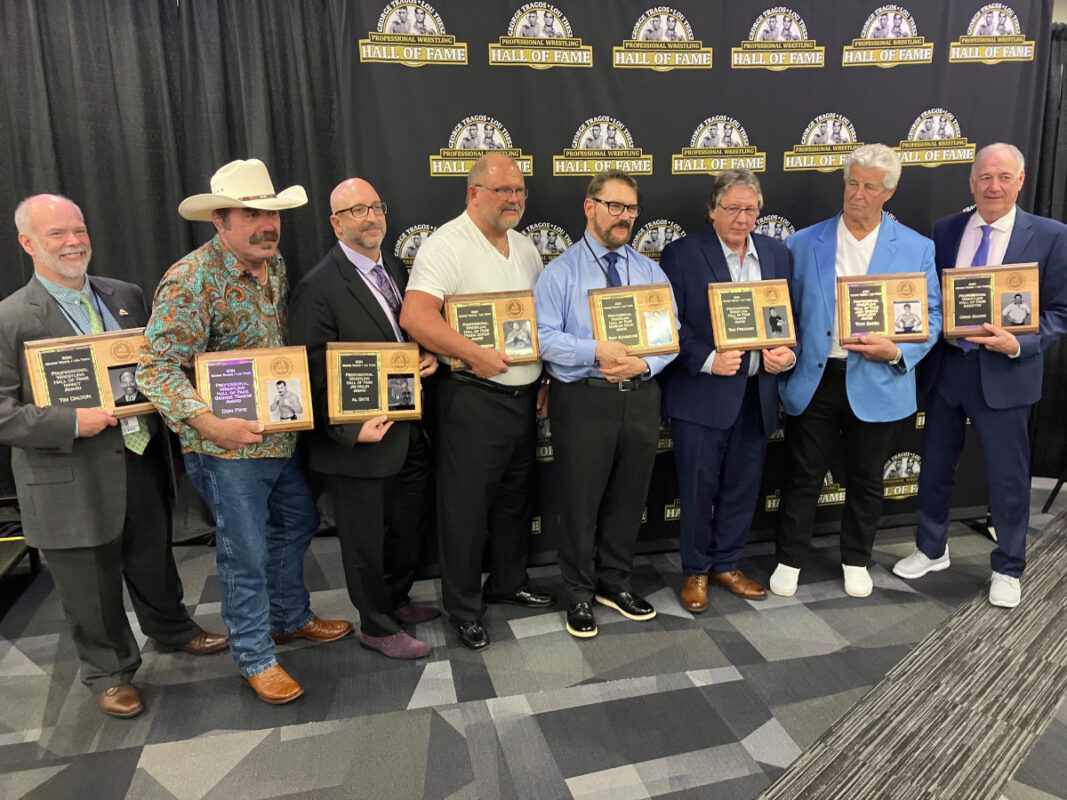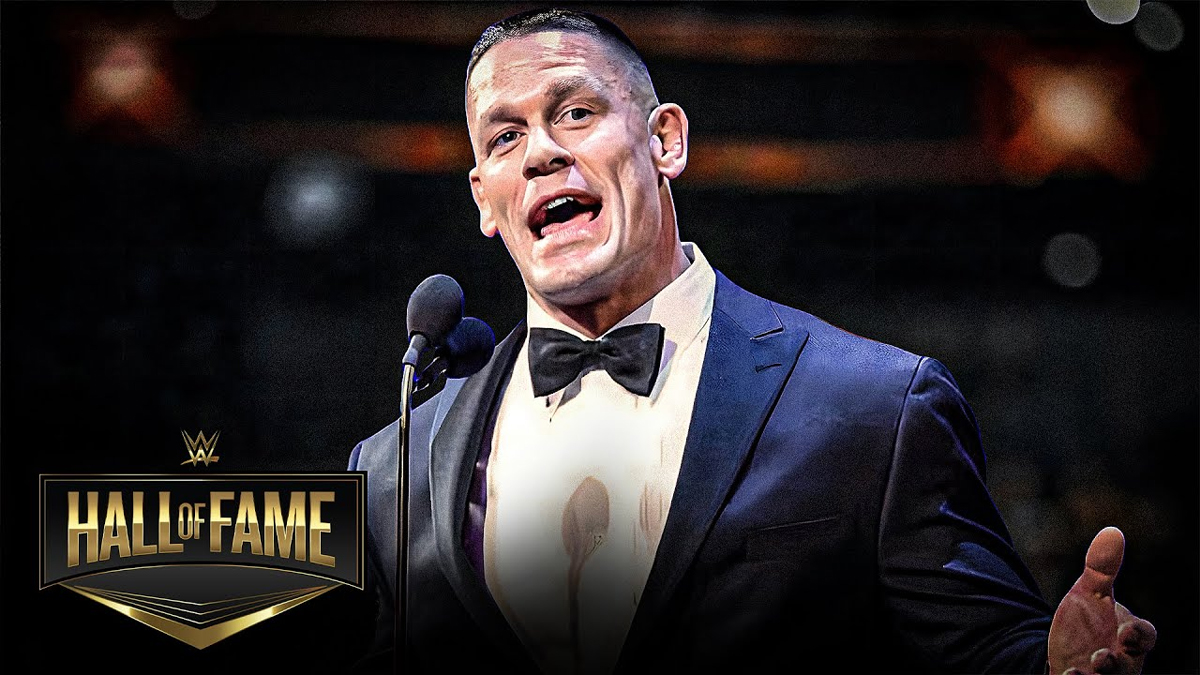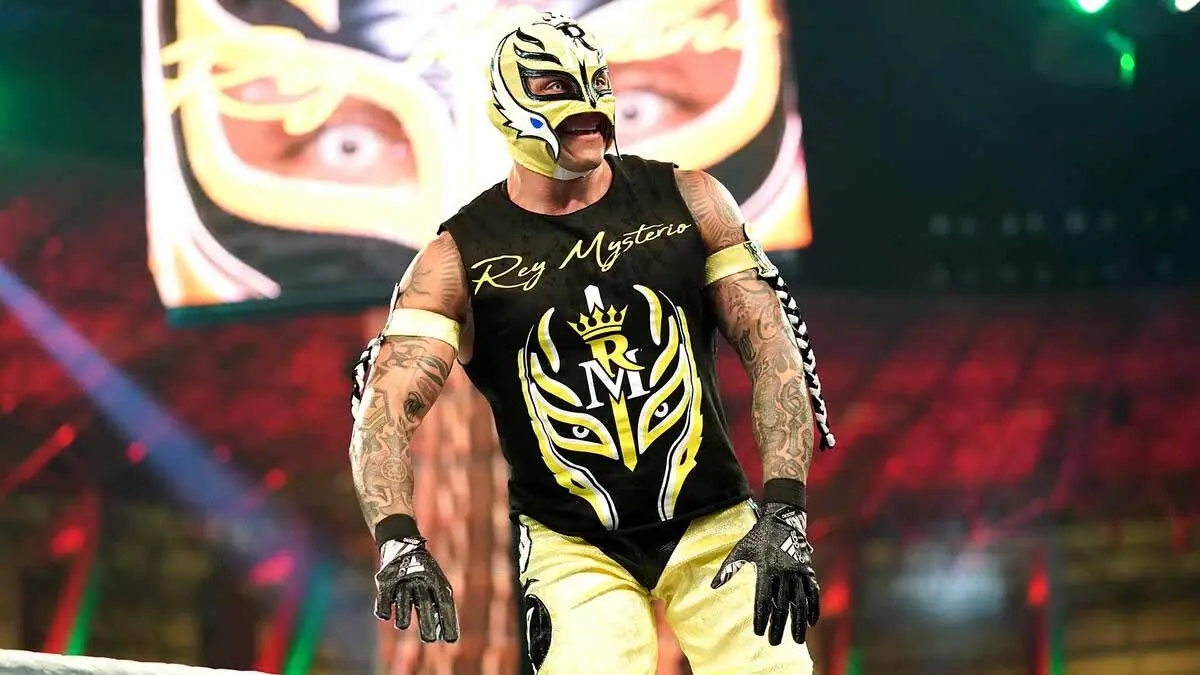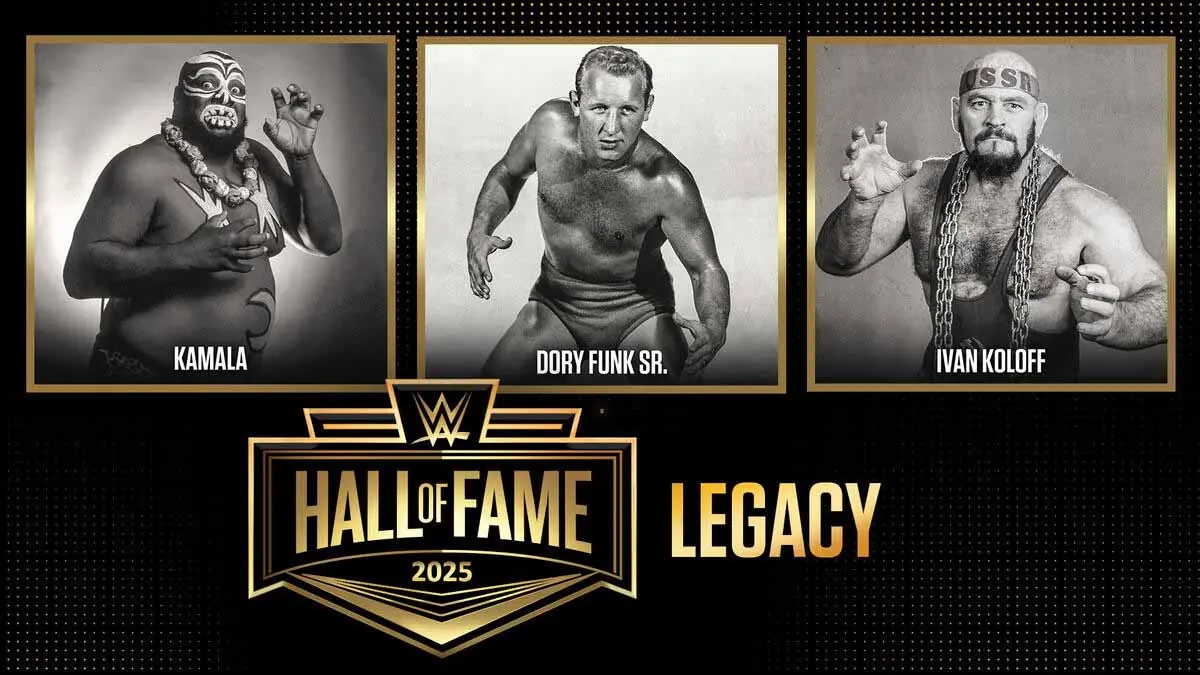WATERLOO, Iowa—The big winner on the silver anniversary of the George Tragos/Lou Thesz Professional Wrestling Hall of Fame was … the Tragos/Thesz Hall of Fame.
The nine honorees, led by Frank Gotch Award winner Arn Anderson, were a highlight of the July 19 induction banquet, held at the Waterloo Convention Center.
But just as impressive was a record crowd of more than 200 attendees and financial support for the hall, which started meager operations 25 years ago in Newton, Iowa, and has grown in stature and size since.
The Cauliflower Alley Club presented a $3,000 check to help underwrite the hall of fame, part of the National Wrestling Hall of Fame-Dan Gable Museum. That was followed up by a $20,000 donation from Filsinger Games.
Taken with a record number of all-access passes and revenue from side attractions like a cribbage game, Gerald Brisco, president of the hall board of directors, said the facility is on a path for even bigger and better things.
“This has been a remarkable night thanks to the support of all of you,” Brisco said, wrapping up a fast-moving night of laughs and tears. “We’ve heard things hear that are gojng to stick with us for the rest of our lives.”
With welled-up eyes, Anderson received the hall’s top honor after his son Brock, scheduled to wrestle on an accompanying June 20 show in Waterloo, called him his “hero and best friend.”
Anderson emphasized the community of wrestling in his acceptance speech, telling the crowd that no one in wrestling gets over without help from others. “If you truly love this business, teach the young guys,” said the longtime star, agent and producer with two federations. “This business will not die because this room and everybody else does not want it dead.”
From his rugby roots in New Zealand to his championship performances in the WWWF, Tony Garea sounded the same note of collaboration as he accepted the Jack Brisco Spotlight Award. It was a fitting honor because Garea credited Brisco with advancing his career when he broke into the U.S. scene in Florida more than 50 years ago.
“I just broke out in goosebumps” when Gerald Brisco, Jack’s brother, informed him of the honor, Garea said. Brisco invited him to travel with him on the road and talked the mat game with him every Sunday at his home.
Those experiences taught him how to tell a story in the ring. “If it wasn’t for Jack Brisco, I wouldn’t be here today,” Garea said.
Dr. Tom Prichard, introduced as “the greatest trainer of his generation by John Bradshaw Layfield, received the Verne Gagne Trainer Award, named for the great American Wrestling Association champion and mentor to more than 140 wrestlers.
Prichard recounted how he worked in Paul Boesch’s Houston office as a teenager, buying a pair of mail-order boots and dreaming of being a pro wrestler. Still a trainer near Knoxville, Tennessee, Prichard said his career has taught him that a one-size-fits-all approach is the wrong way to teach would-be grapplers.
“I learned different ways of training. … Everybody has their own way of going about it.”
Tito Santana battled airplane groundings and missed connections to arrive in time for the Lou Thesz Award, presented to a wrestler who demonstrates community involvement out of the ring as well as skills in it.
Santana was cited for his work as a teacher following his active career and regaled fans by telling them how students from seniors to pre-kindergarten could give him as much trouble as rival matmen.
“Professional wrestling is like a fraternity. You might hate the one person in the locker room but if anyone messed with him, he’s your brother,” Santana said.
The Gordon Solie Announcer Award went to Tony Schiavone, though not until his son Chris and Laurie Schiavone Engel took turns with a good-natured ribbing of how the Schiavone calling Hulk Hogan matches really wasn’t that different from the dad who piled them into the car on vacations.
“For a father who was always traveling, he was always at home,” they said as Schiavone teared up to meet them on the podium. “I got all choked up. I had no idea who these two kids were,” he laughed.
On a serious note, the longtime voice of wrestling said he had balked at hall-of-fame inductions, saying he felt they should be reserved for wrestler who did the real work. But he couldn’t resist when Gerald Brisco informed him of the award.
“Not only is he a legend but he might stretch your ass if you say no,” said Schiavone, who said he always brings his excitement as a fan to the mic.
Greg Gagne, Verne’s son and a major star in his own right, joined his father as a family duo in the hall. Gagne related a little of his history growing up and how a tussle on the door led to two cracked ribs at a time when he was playing quarterback for the University of Wyoming.
“This is a dream come true,” Gagne said as he held up his award.
Don Frye received the George Tragos Award for his long career in wrestling and mixed martial arts. Frye chuckled recalling his less-than-gentle touch in the ring. “For four years, I beat people up when it was supposed to be a work,” Frye said. “Somewhere the explanation between work and shoot just didn’t hit with me.”
Manager-turned-researcher Al Getz took him the Jim Melby Award, named for the renowned Minnesota-based historian. Known for his Charting the Territories books and podcast, Getz thanked his mother and other researchers, pointing out the value of commemorating the community of wrestling in facts and figures.
Getz’s novel approach gives “a clearer picture of what life was like not just for the stars, but for every pro wrestler.”
Tim Dalton, who grew up watching wrestling in upstate New York, received the Impact Award. Dalton has been at all 25 hall of fame inductions. A special recognition also went to Al De Rusha, a veteran broadcast professional associated with Verne Gagne’s American Wrestling Association.
2024 TRAGOS/THESZ HOF HONOREES
- Greg Gagne – Inductee
- Arn Anderson – Frank Gotch Award
- Tito Santana – Lou Thesz Award
- Tony Garea – Jack Brisco Spotlight Award
- Tony Schiavone – Gordon Solie Award
- Don Frye – George Tragos Award
- Tom Prichard – Verne Gagne Trainer Award
- Al Getz – Jim Melby Award
- Tim Dalton – Impact Award
RELATED LINKS



